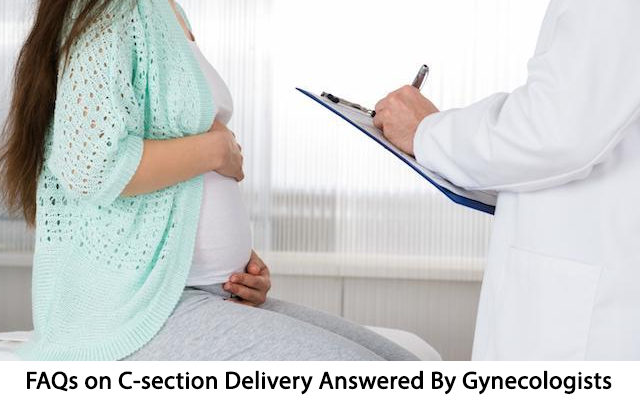C-sections, or Cesarean deliveries, are common surgical procedures used to deliver babies when a vaginal birth poses risks. If you are expecting or planning a family, you might have some questions about C-sections. Here, we will address some of the most frequently asked questions that will help you get clear, reliable answers from experienced gynecologists.
Commonly Asked Questions on C-section Delivery
Below, our gynecologists will answer some of the frequently asked questions on C-section delivery.
1. What is a C-section?
A C-section is a surgical procedure where a baby is delivered through an incision in the mother’s abdomen and uterus. It is usually recommended when a vaginal birth would be too risky for the mother or baby.
2. Why is a C-section Necessary?
There are several reasons why a gynecologist might recommend a C-section, such as:
- Breech position: When the baby is positioned feet-first or bottom-first.
- Multiple pregnancies: In cases of twins or higher-order multiples.
- Fetal distress: If the baby’s heart rate drops or there are other signs of distress during labor.
- Placenta issues: Placenta previa, where the placenta blocks the birth canal, is another common reason for C-sections.
- Failure to progress: If labor isn’t progressing as expected, a C-section might be necessary.
3. Is a C-section Safe?
While a C-section is generally safe, it is a major surgery, and as with all surgeries, there are risks involved. These include infections, blood loss, and longer recovery times in comparison to vaginal delivery. However, in cases where a C-section is medically necessary, the benefits outweigh the risks. If you want more information on C-section procedures, you can visit SH Binayak, a gynaecology hospital in Dumdum, for expert advice and care.
4. What Is the Recovery Process Like?
Recovery after a C-section takes longer than a vaginal birth. Expect to spend a few days in the hospital for monitoring, and you may need around 6 to 8 weeks to fully recover. Follow the doctor’s instructions for proper care of the incision site and avoid heavy lifting or strenuous activities during the recovery period.
5. Can I Have a Vaginal Birth After Undergoing a C-section (VBAC)?
Many women can attempt a vaginal birth after a C-section, depending on their medical history, the reason for the initial C-section, and their health.
6. Is a C-section Right for Me?
Every pregnancy is unique, and the gynecologist will guide you through the decision-making process to understand the best approach for your delivery, whether that’s a vaginal birth or a C-section.
Conclusion
Understanding C-section benefits and risks can enable you to make the right decisions about your delivery. If you are expecting and have more questions, reach out to the gynaecologists of SH Binayak, a gynaecology hospital in Dumdum, for pregnancy care and advice.



